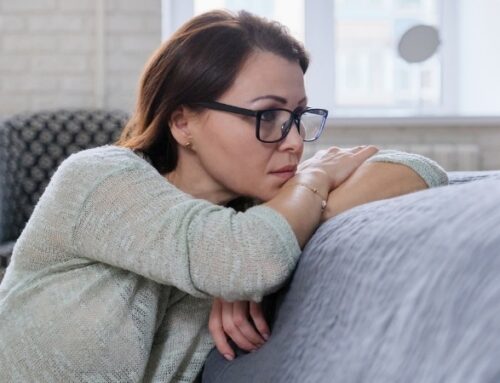For many persons suffering from anxiety or depression, the holiday season and New Year can be a difficult time. Unrealistic expectations or commitments, family connection or disconnection, social isolation, financial problems, grief and loss, geographic change, and less sunlight, can lead to stress, anxiety, sadness and depression.
Headaches and body aches, over-eating, excessive spending, and insomnia are a few ways in which the inability to cope with the holiday blues can manifest themselves.
During such times, it is important to develop a plan of action to head off or derail the effects of the holiday blues. If untreated, they can last way beyond the holiday season and into the New Year.
For some people, increased social support can be of great benefit. This may include connecting with old friends or family members. Facebook and other social media can help start the process and, of course, the old-fashioned phone call is a true and tried method. The meetup.com site is a great way to connect with people who share your interests. Counseling and support groups are other ways of self-exploration and learning to connect with the world outside of yourself.

For people suffering with Season Affective Disorder (SAD), which is associated with shorter days of sunlight, increased exposure to the outdoors as well as phototherapy 30 minutes daily (25xs as bright as normal lighting), can help increase feelings of well-being.
While for some the holiday season means good, happy times with friends and family, for many people it represents a time of sadness, debilitating self-reflection, loneliness and anxiety. Fatigue, unrealistic expectations, financial pressures, and commercial bombardment to go out and spend money, unfulfilled goals and focus on what’s not right in one’s life may present. The demand to conform to external expectations of what it means to be in the holiday spirit may contradict one’s actual life experience. This leads to internal conflict, somatic ailments, and psychological and emotional distress.
Risk factors for stress, anxiety and depression include, but are not limited to, lack of adequate social supports, recent or past trauma, life changes, substance abuse (the use of alcohol and other drugs to suppress feelings), balancing the demands and expectations of family vs. setting appropriate limits or boundaries, house guests whose presence creates increased tension, and insomnia or isolation.

Tips for Managing Holiday Stress
Increased social support at a balanced level which maintains connection while not creating unrealistic expectations or feelings of overwhelm. In other words, increasing activities which promote inner calm and purpose while ensuring for proper rest and rejuvenation. Engaging in self-pacing by honoring one’s desire for engagement while ensuring proper rest and rejuvenation will increase self-worth while acknowledging one’s energy level. While trying new things can be self-empowering and even enjoyable (listen to your inner voice), trying too hard to have fun or meet others’ expectations or commitments can increase lead to feelings of manipulation and increased stress.
Try being more mindful, that is to say, listening to your body and “living in the moment” rather than creating “musts” and “shoulds” (I must be doing this. I should be doing that.). Take some time to read a good book, paint, or do whatever you once felt passionate about or always thought about doing. Then, take baby steps, begin the process and see what happens. Remember, “Rome wasn’t built in a day.” Life is a process, so give yourself a break, take stock of the good things you’ve done for self and/or others, volunteer at something (ex: soup kitchen, working with seniors or children, or your local place of worship) so you can begin to feel connected with something outside of yourself.
Last, but not least, commit to the process of change by seeking the help of counseling and support groups. It may seem scary at first, but the help and support you receive will help you gain freedom from anxiety and depression. Learning that you are no alone, and being amongst others who understand what you’re going through, can ease the pain, guilt and shame associated with feeling different and out of sorts.





